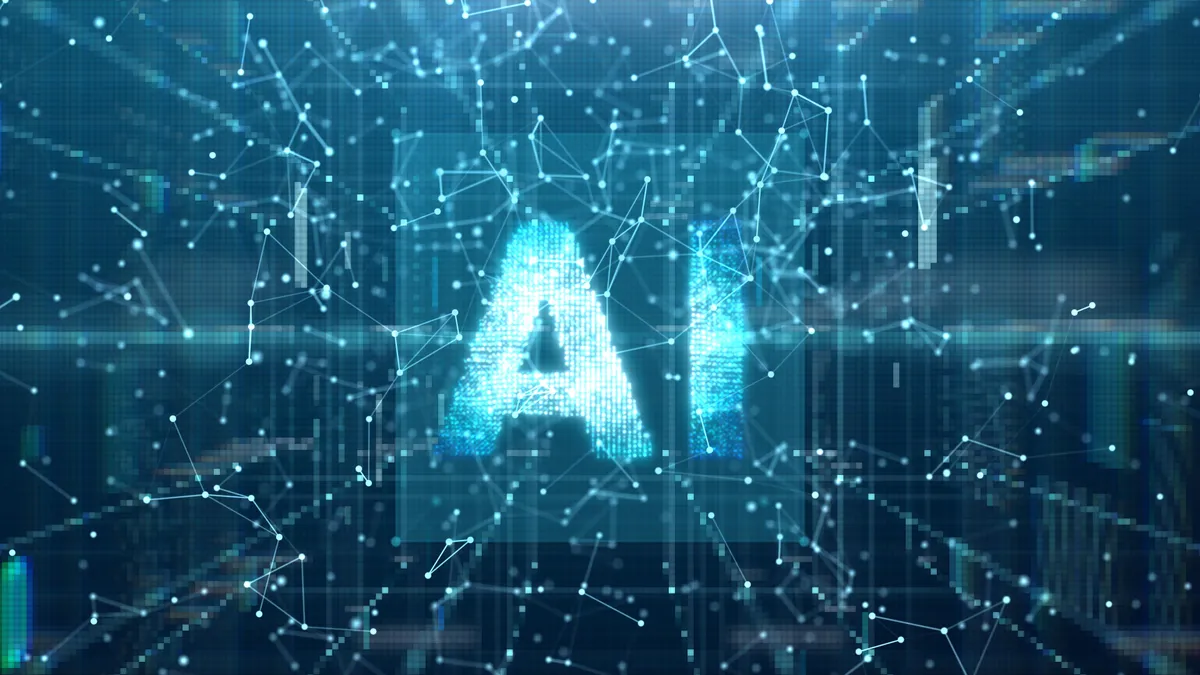Did you know that by 2025, the artificial intelligence industry in Canada is expected to contribute over $125 billion to the national economy? That's a pretty huge number, and it shows just how important AI is becoming in our country. With companies like Shopify, BlackBerry, and Element AI leading the way, Canada has become one of the world's top destinations for AI research and development. This growth means there are tons of opportunities for people who want to learn about AI and maybe even work in this field someday.
If you're thinking about diving into the world of artificial intelligence, you're probably wondering where to start. There are so many courses out there that it can feel overwhelming to choose the right one. The good news is that Canadian universities and institutions offer some of the best AI programs in the world, and there are also great online options that you can take from anywhere in the country. Whether you're a complete beginner or someone who already knows a bit about programming, there's definitely a course that fits your level.
In this article, we'll explore the top AI courses available to Canadians in 2025, from university programs to online certifications. We'll look at what makes each course special, what you'll learn, and how they can help you build the skills needed for a career in AI. By the end, you'll have a clear idea of which path might be right for you.
University Programs Leading the Way
Canadian universities have really stepped up their game when it comes to AI education. The University of Toronto, for example, has been ranked as one of the top three AI research institutions globally, and their undergraduate and graduate programs reflect this excellence. Their Computer Science program with a focus on AI covers everything from machine learning basics to advanced neural networks. Students get to work with real datasets and learn from professors who are actually doing cutting-edge research.
According to Dr. Sarah Mitchell from the University of British Columbia's Department of Computer Science, "We've seen a 340% increase in applications for our AI-related programs since 2023. Students are recognizing that these skills will be essential for almost every industry in the coming years." UBC's Master of Data Science program has become particularly popular, combining AI with practical business applications.
McGill University in Montreal offers another excellent option with their School of Computer Science. What makes McGill special is their focus on both the technical and ethical aspects of AI. Professor Jean-Claude Dubois explains, "We don't just teach students how to build AI systems – we teach them to think about the impact these systems will have on society." Their program includes courses on AI bias, privacy concerns, and responsible AI development.
The University of Alberta rounds out the top university options with their Computing Science program. They're particularly strong in reinforcement learning and have partnerships with companies like DeepMind. Students often get opportunities to work on real projects with industry partners, which gives them practical experience before they graduate.
Online Learning Platforms and Certifications
Not everyone can attend university full-time, and that's where online courses come in really handy. Coursera has partnered with several Canadian institutions to offer AI courses that you can take at your own pace. The University of Toronto's "Introduction to Machine Learning" course on Coursera has been completed by over 45,000 Canadian students since its launch in early 2025.
edX offers some great options too, including a MicroMasters program in AI from the University of British Columbia. This program is designed for working professionals and covers topics like computer vision, natural language processing, and robotics. What's cool about it is that if you complete the MicroMasters, you can actually get credit toward a full master's degree if you decide to apply to UBC later.
Specialized Certification Programs
For people who want to focus on specific areas of AI, there are some really targeted certification programs available. The Vector Institute in Toronto, which is one of Canada's leading AI research centers, offers professional development courses for people already working in tech. Their "AI for Business Leaders" course has been particularly popular with managers and executives who need to understand AI but don't necessarily need to code.
According to Maria Santos, Director of Education at Vector Institute, "We've trained over 2,800 professionals through our certification programs in 2025 alone. The demand for AI literacy across all sectors is unprecedented." These programs typically run for 6-12 weeks and include both online learning and in-person workshops in Toronto.
Industry-Specific AI Training
One thing that's really exciting about AI education in Canada right now is how specialized it's becoming. Different industries need different types of AI knowledge, and educational institutions are responding to this need. For healthcare, the University of Waterloo offers a "AI in Healthcare" certificate program that teaches students how to apply machine learning to medical data while following strict privacy and ethical guidelines.
The financial sector has its own specialized programs too. Ryerson University (now Toronto Metropolitan University) has developed a "FinTech and AI" program that focuses specifically on applications like fraud detection, algorithmic trading, and risk assessment. This program has become really popular because Canada's banking sector is actively looking for people with these skills.
For those interested in AI applications in natural resources – which is huge in Canada – the University of Calgary offers courses in "AI for Energy Systems." This program covers how AI can be used to optimize oil and gas operations, renewable energy systems, and mining operations. Given that these industries employ hundreds of thousands of Canadians, having AI skills in these areas can be really valuable.
Government and Public Sector Applications
The Canadian government has also recognized the importance of AI education. Through the Digital Technology Supercluster, they've funded several training programs focused on AI applications in the public sector. These courses cover topics like using AI to improve government services, analyzing public health data, and optimizing transportation systems.
Dr. Robert Chen from Simon Fraser University, who leads one of these government-funded programs, notes that "Public sector AI applications require a different approach than commercial applications. We need to prioritize transparency, accountability, and fairness even more than efficiency." These specialized courses are preparing students to work on projects that directly benefit Canadian communities.
Building Practical Skills and Getting Hands-On Experience
One of the most important things about learning AI is getting hands-on experience with real projects. Many of the top courses in Canada now include capstone projects where students work on actual problems faced by Canadian companies or organizations. For example, students in the University of Waterloo's AI program recently worked with Canadian Tire to develop a recommendation system for their online platform.
Hackathons and competitions have also become a big part of AI education. The Canadian AI Student Challenge, which started in 2025, brought together over 1,200 students from across the country to work on problems like predicting forest fire risks and optimizing public transit routes. Events like these give students a chance to apply what they've learned and also network with potential employers.
Many courses now also include internship components or co-op programs. The University of Waterloo's co-op program has placed AI students at companies like Shopify, RBC, and even international companies like Google and Microsoft's Canadian offices. These internships are incredibly valuable because they give students real work experience and often lead to job offers after graduation.
Open Source Projects and Community Learning
Another great way to build AI skills is through open source projects and community learning. Toronto has a really active AI meetup community, with events happening almost every week. These meetups often include workshops, presentations by industry experts, and networking opportunities. Similar communities exist in Vancouver, Montreal, and other major Canadian cities.
GitHub has also become an important learning tool for AI students. Many Canadian professors now require their students to contribute to open source AI projects as part of their coursework. This gives students experience working with real codebases and collaborating with developers from around the world.
The field of artificial intelligence is moving incredibly fast, and the educational opportunities available to Canadians in 2025 reflect this rapid growth. Whether you choose a traditional university program, an online certification, or a specialized industry-focused course, the key is to start learning and practicing as soon as possible. The courses we've discussed offer different paths into the AI field, but they all share a focus on practical, hands-on learning that prepares students for real-world applications.
As AI continues to transform industries across Canada, from healthcare and finance to natural resources and government services, the demand for skilled AI professionals will only continue to grow. The courses and programs available today are designed to meet this demand while also addressing the unique challenges and opportunities that exist in the Canadian context. By choosing the right educational path and staying committed to continuous learning, you'll be well-positioned to contribute to Canada's exciting AI future and build a rewarding career in this dynamic field.



